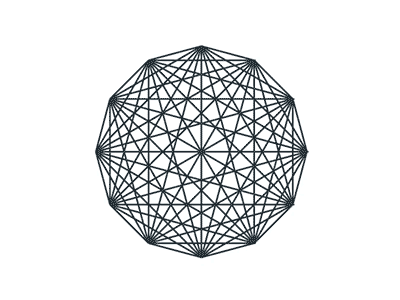
Personalized System of Instruction
a.k.a. "The Keller Plan", is an enhanced mastery learning
strategy to ensure reinforcement throughout the learning process.
Learning ScienceInstructional Design
Research
"Engineering personalized instruction in the classroom" - Keller, F. S.
(1967).
Abstract
Personalized System of Instruction, also known as the Keller Plan, was
developed in the mid-1960s by Fred Keller and colleagues. It was developed
using mastery learning theory and is based on the idea of reinforcement in
teaching processes. While traditional teaching is "same pace, different
learning", a key distinguishing factor of PSI is that it instead advocates
"different pace, same learning".
Research Recommendation
Keller recommended that effective instruction should incorporate five
principles, which are the essential elements of the Keller Plan: 1. Written
materials - The primary presentation of new content should be through written
texts. Given the forms of media available at the time when the Keller Plan was
developed (e.g., lectures, movies, audio records, television, radio,
paper-based text, etc.), paper-based texts gave students the greatest freedom;
books and texts are portable, can be read at one's own pace, can be started
and stopped at any time, can be easily reviewed, and can be marked by the
reader. As an application of behaviorism, the Keller Plan was meant to
maximize the number of operant behaviors that could be reinforced; this could
best be done with written materials rather than have the learner be a passive
observer of other media. Digital media available today could provide the same
kinds of learner control and presumably could be incorporated into a
contemporary implementation of PSI. 2. Units of content - Subject matter
material should be broken down into separable, meaningful units. These units
could have various kinds of relationships; for example, one could provide
prerequisites for understanding a second, or the second could provide deeper
elaboration of a preceding unit. In any case, specific learning objectives
should be definable for each discrete unit of content. 3. Self-paced
instruction - Students should be allowed to advance through the course
material at their own pace. While an instructor might specify the order in
which learning units are completed, the learners should decide when and at
what rate they learn. This means that learners can move through a course as
quickly or as slowly as they choose. 4. Unit mastery - Students must satisfy a
mastery requirement in one unit before proceeding to the next. Students must
demonstrate mastery of a unit's objectives to a certain level of quality. If
the student does not reach the threshold, they are redirected to unit
materials (or supplements if provided) and then take an equivalent form of the
unit assessment. From the point of view of behaviorism, demonstrating mastery
and being allowed to continue to a subsequent unit was presumed to be
reinforcing. 5. Proctors - Human proctors are an important part of the Keller
Plan. The proctors could be "external" to the course (adults or peers brought
to the course from external sources) or "internal" (advanced students in the
course who are doing well, have completed all units to date, and have good
interpersonal skills). Proctors are the arbiters of unit mastery; they
"certify" mastery, discuss areas of weakness, and direct students to the next
units. Behaviorists were always concerned about bringing conditioned behaviors
under the control of "natural" reinforcers; interactions with the proctors
were presumed to provide natural social reinforcers that encouraged learning
behaviors and perseverance in the course.

The figure above illustrates the Personalized
System of Instruction as discussed by The Keller Plan.
Evidence of Impact
Fred Keller and his colleagues conducted a series of studies and published a
summary of their findings. Based on the evidence gathered from these studies,
a traditional course might have all students follow the same weekly lectures,
exercises, etc., followed by an end-of-course exam that all take at the same
time - but possibly with huge variations in learning outcomes (e.g., 95%
achievement for a strong student, but just 55% for a weak one). In a course
run according to PSI, all students must pass a high threshold of achievement
on each module within the course (for instance 90%). The difference between
weak and strong students would then be that the stronger ones are able to
finish the course quicker, while the weaker ones would need more time.
Implementation on ScootPad
Through meticulous design and painstaking implementation, ScootPad
incorporated the five key principles of The Keller Plan namely 1) Written
materials 2) Units of content 3) Self-paced instruction 4) Unit mastery and 5)
Proctors - to enable reinforcement throughout the learning process.

The figure above illustrates how ScootPad
drives reinforcement throughout the learning process.



































